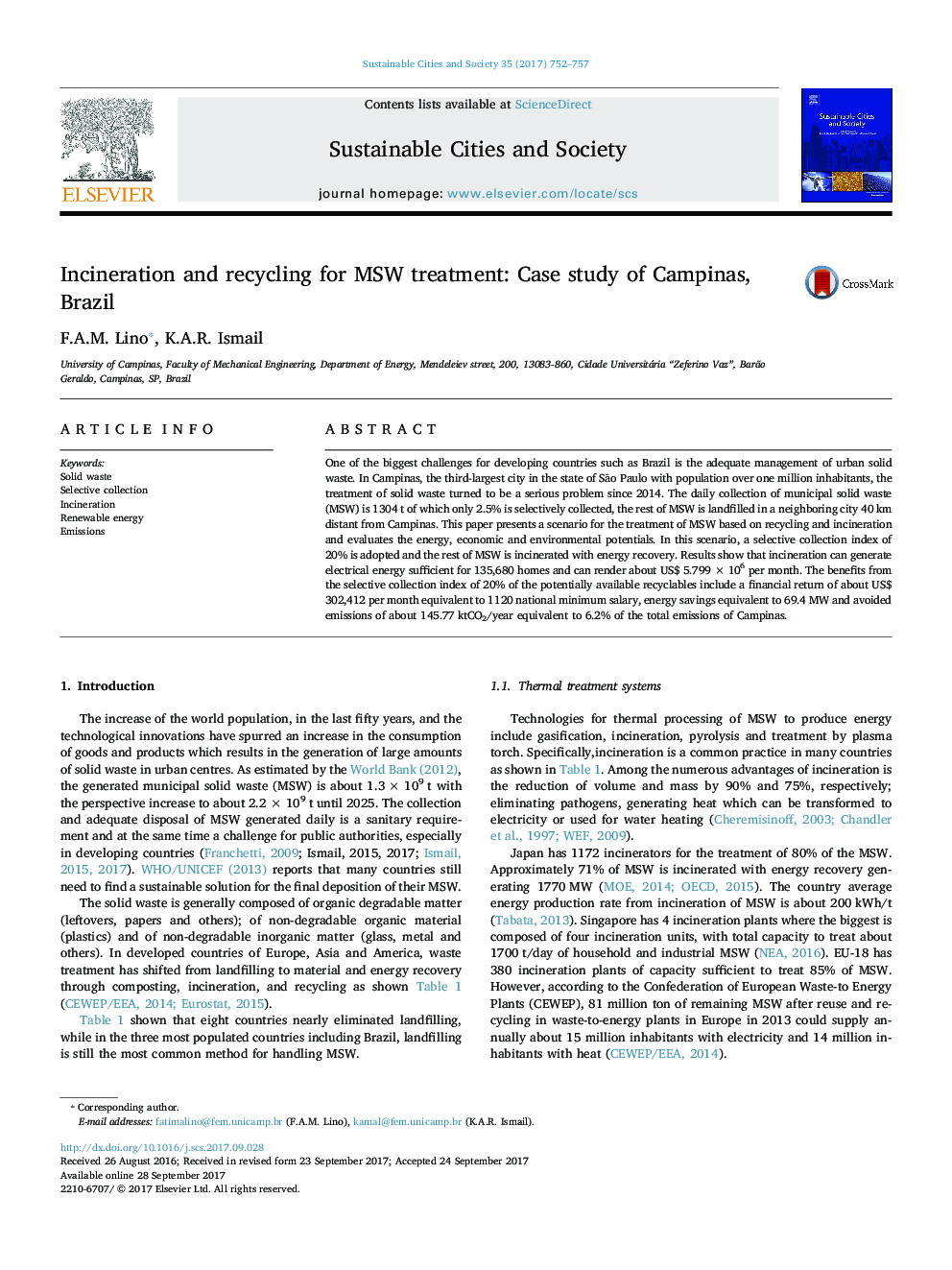| Article ID | Journal | Published Year | Pages | File Type |
|---|---|---|---|---|
| 4928131 | Sustainable Cities and Society | 2017 | 6 Pages |
Abstract
One of the biggest challenges for developing countries such as Brazil is the adequate management of urban solid waste. In Campinas, the third-largest city in the state of São Paulo with population over one million inhabitants, the treatment of solid waste turned to be a serious problem since 2014. The daily collection of municipal solid waste (MSW) is 1304 t of which only 2.5% is selectively collected, the rest of MSW is landfilled in a neighboring city 40 km distant from Campinas. This paper presents a scenario for the treatment of MSW based on recycling and incineration and evaluates the energy, economic and environmental potentials. In this scenario, a selective collection index of 20% is adopted and the rest of MSW is incinerated with energy recovery. Results show that incineration can generate electrical energy sufficient for 135,680 homes and can render about US$ 5.799 Ã 106 per month. The benefits from the selective collection index of 20% of the potentially available recyclables include a financial return of about US$ 302,412 per month equivalent to 1120 national minimum salary, energy savings equivalent to 69.4 MW and avoided emissions of about 145.77 ktCO2/year equivalent to 6.2% of the total emissions of Campinas.
Related Topics
Physical Sciences and Engineering
Energy
Renewable Energy, Sustainability and the Environment
Authors
F.A.M. Lino, K.A.R. Ismail,
